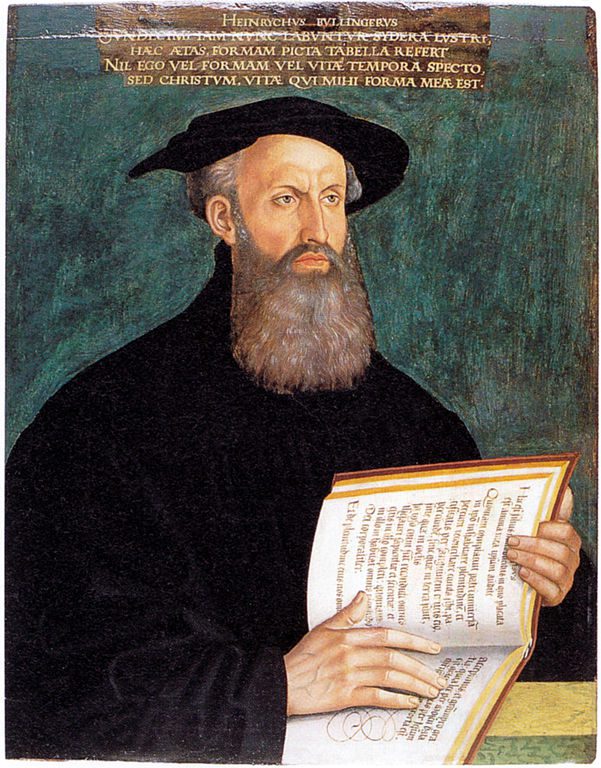
Christian writer David Waltz cited in a discussion thread a book that cited a quotation of (Protestant “reformer”) Heinrich Bullinger (1504-1575) , from my book, A Biblical Defense of Catholicism. Here it is:
Elijah was transported body and soul in a chariot of fire; he was not buried in any Church bearing his name, but mounted up to heaven, so that . . . we might know what immortality and recompense God prepares for his faithful prophets and for his most outstanding and incomparable creatures…It is for this reason, we believe, that the pure and immaculate embodiment of the Mother of God, the Virgin Mary, the Temple of the Holy Spirit, that is to say her saintly body, was carried up to heaven by the angels.
He was then given the fifth degree by an anti-Catholic for actually citing me, as if this were the most outrageous thing in the world! It was suggested that my information was inaccurate or highly skewed.
For those a bit more fair and objective, the source information given is provided in my book (p. 209, footnote 229).
The secondary source I got the Bullinger quote from was Max Thurian’s book, Mary: Mother of All Christians, translated by Neville B. Cryer, New York: Herder and Herder, 1964, 197-198. This was, of course, listed in my book (both editions). Thurian was a Reformed Protestant at the time he wrote this book (I believe he later became a Catholic).
I also listed the primary work: De Origine Erroris (16), from 1568. I must have found that from some other source (likely Janssen), because it isn’t in Thurian. Thurian, in turn, took the citation from W. Tappolet, Das Marienlob der Reformatoren, Katzmann-Verlag, Tubingen, 1962, p. 327. Tappolet is also a Protestant author.
I didn’t list this further source in my book because I figured most readers of a popular (English) apologetics book cared little about a German-language reference source. But of course if someone was dying to find this out, they could have found it in Thurian’s footnote. And with the name of the original primary work, they could run it down in some such source anyway.
I tracked down the original source further. There were several editions (apparently having to do with different languages), and I found one listed for 1568:
Bullinger, Heinrich, 1504-1575.
[De origine erroris. 1568]
De origine erroris libri duo / Heinrychi Bullingeri … ; ab ipso authore nunc demum recogniti, & aliquot locis praeclarè aucti … ;
accesserunt his insuper eiusdem authoris libris duo de concilijs, opus uarium, utile, & nostro seculo tantum non necessarium.
Tiguri : Excudebat Christophorus
Froschouerus, 1568.
[4], 183, [5] leaves.
Staedtke, J. Heinrich Bullinger Werke 1:14.
Zurich ZB
7 microfiches.
Order no. PBU-673
My anti-Catholic critics can exert themselves to prove that I lied about the citation, since I got the lie from a Reformed Protestant author, who in turn got it from another Protestant (probably Lutheran) author. I can’t wait to see them prove that. Always major on the minors and obfuscation . . .
*
Do these critics really think I am so stupid that I would leave myself open for that sort of a major error? After having written four published books, with two of the most reputable Catholic publishers, I think I know a little bit about footnotes and sources: at least as much as certain critics of mine do.
I’m not perfect, and I make innocent errors in documentation sometimes, like anyone else, but none of my critics have ever caught me in some huge whopper, much as they would love to do so. Seeing the huge volume of writing that I produce, I think that is a pretty good record indeed.
*****
Meta Description: Early Protestant “reformer” Heinrich Bullinger believed in the Assumption of the Blessed Virgin Mary.













